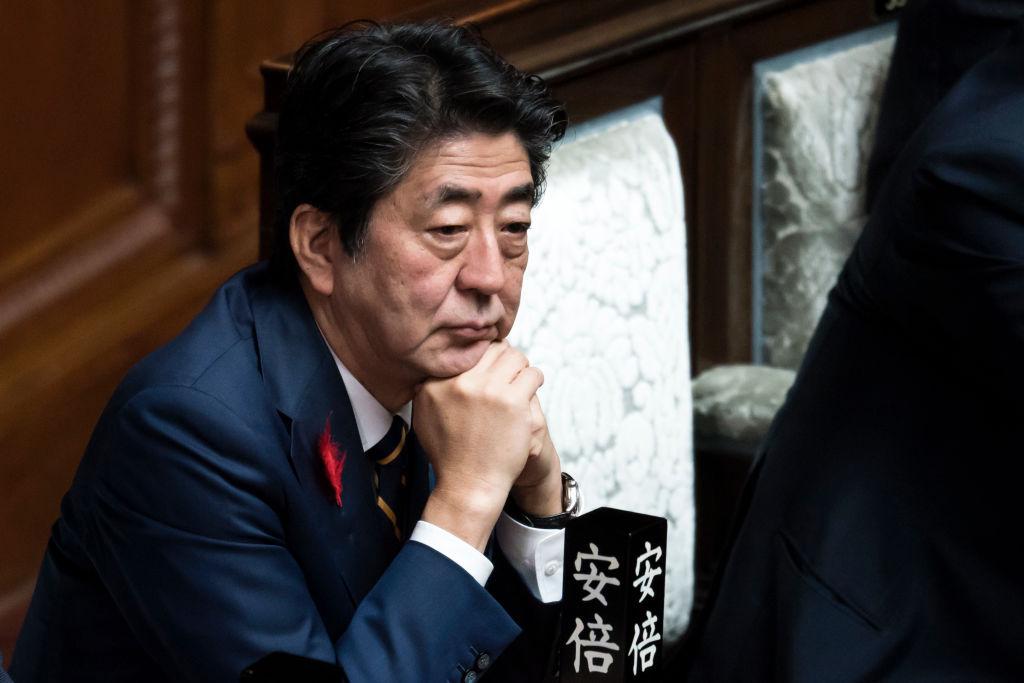
Under the premiership of Shinzo Abe, Japan appears to have found its feet as a regional and global actor. By providing political stability and policy continuity at home, Abe’s governing Liberal Democratic Party, along with its Komeito ally, has secured the support of a Japanese electorate that values economic prosperity, is risk-averse when it comes to foreign policy and has shown little confidence in Japan’s fractured opposition parties.
But does this record of success at the ballot box amount to proof of leadership ability? When it comes to diplomatic engagement and energy, few can match the hyperactivity of this peripatetic prime minister. Abe’s willingness to travel the globe to establish Japan’s credentials as a ‘proactive contributor to peace’ has given Japan an uncommon visibility and a sustained presence that have enabled him to establish a personal rapport with other national leaders.
On security policy, Abe’s credentials as a pragmatic realist are impressive. He has presided over a much-needed increase in military capabilities and overseen the expansion of Japan’s strategic options beyond its traditional reliance on the United States.
By advancing a new vision of a ‘free and open Indo-Pacific’, Abe has shown an appetite to engage in the difficult process of laying out a long-term foreign policy plan that reflects Japan’s national interests. Recent efforts to improve ties with China, such as Abe’s visit to Beijing last October and next year’s anticipated visit to Japan by President Xi Jinping, also reflect Abe’s tactical pragmatism. By hedging, the government is shrewdly avoiding excessive dependence on the United States and anticipating the dangers associated with a more confident and regionally assertive China.
There are limits to what this inherently rational and forward-looking approach can deliver. The spread of populist politics, the re-emergence of nationalism and the growing strength of authoritarian regimes globally are all undercutting the multilateral norms and values that have served Japan so well.
Despite Japan’s success hosting of the G20 in Osaka in June 2019, for instance, the substantive achievements of the summit have been modest. The failure to make progress in key areas at Osaka has been striking—for example, there was no explicit rejection of ‘protectionism’ in the summit’s communiqué and no formal recommitment to a ‘rules-based international system’ despite Japan’s longstanding support for such a message.
For all of Abe’s considerable investment of time in establishing a personal rapport with Donald Trump, his approach has had little influence in insulating Japan from the US president’s brutal transactional approach to international diplomacy. The suggestion by John Bolton, Trump’s former national security adviser, that Japan increase five-fold its host-nation contribution to the financial costs of the bilateral partnership and Trump’s undiplomatic questioning of the US–Japan Mutual Security Treaty are deeply unsettling to Japanese officials.
Pressure from the White House for a bilateral trade deal with Japan under the threat of punitive tariffs is further proof of Washington’s heavy-handed approach and willingness to impose substantial political costs on Abe, who has already expended considerable political capital at home in seeking to internationalise and liberalise the Japanese economy.
Yet the country remains mired in a slow-growth, high-debt deflationary trap, reinforced by the latest downgraded GDP growth statistics for 2019 of 0.9%, down from 1.3%.
In foreign affairs, Abe’s attempts to achieve breakthroughs with Russia, Iran and North Korea have yielded little progress. Despite the importance of the country’s Indo-Pacific vision, it is also not immediately clear that this adds up to a coherent strategy. As was often the case in the past, there’s a gap between the policy ambitions of Japan’s elite and a sceptical Japanese public.
On one important foreign policy issue, however, the gap between elite and mass opinion has narrowed. The sharp deterioration in relations with Seoul, prompted by disputes over wartime Korean labourers and ‘comfort women’ and by Japan’s decision to restrict exports of critical semi-conductor technology to South Korea, has injected an unfamiliar emotionalism into the Abe government’s approach.
For Abe and his government colleagues, and not a small part of the Japanese public, something appears to have snapped. The forbearance and patient, legalistic approach of the past have been replaced with a new mood of irritation and anger.
This shift reflects the revival of identity politics and competing nationalistic impulses where politicians are grappling with highly contested and sometimes mutually contradictory notions of nationhood.
For some critics of Abe, especially on the political left, a more unapologetic and nationally confident posture by Japan’s conservatives is a problematic if not retrograde step. It helps to explain the increased salience of the issue of constitutional revision in Japan. Abe remains firmly committed to this goal and needs to confront the potential contradiction of advancing goals driven by emotional (and often deeply divisive) needs rather than rational, strategic objectives.
Ultimately, deciding how to resolve such contradictions requires an explicit and transparent public discussion about Japan’s own political values and how they should influence its foreign policy. Abe, to his credit, has called for more Diet debate on some of these themes. It is unclear whether Abe has the leadership capacity to lead this debate in a genuinely inclusive and unifying manner. If he does, it will help him build on his existing foreign policy achievements and establish his political legacy in ways that might prove unexpected.